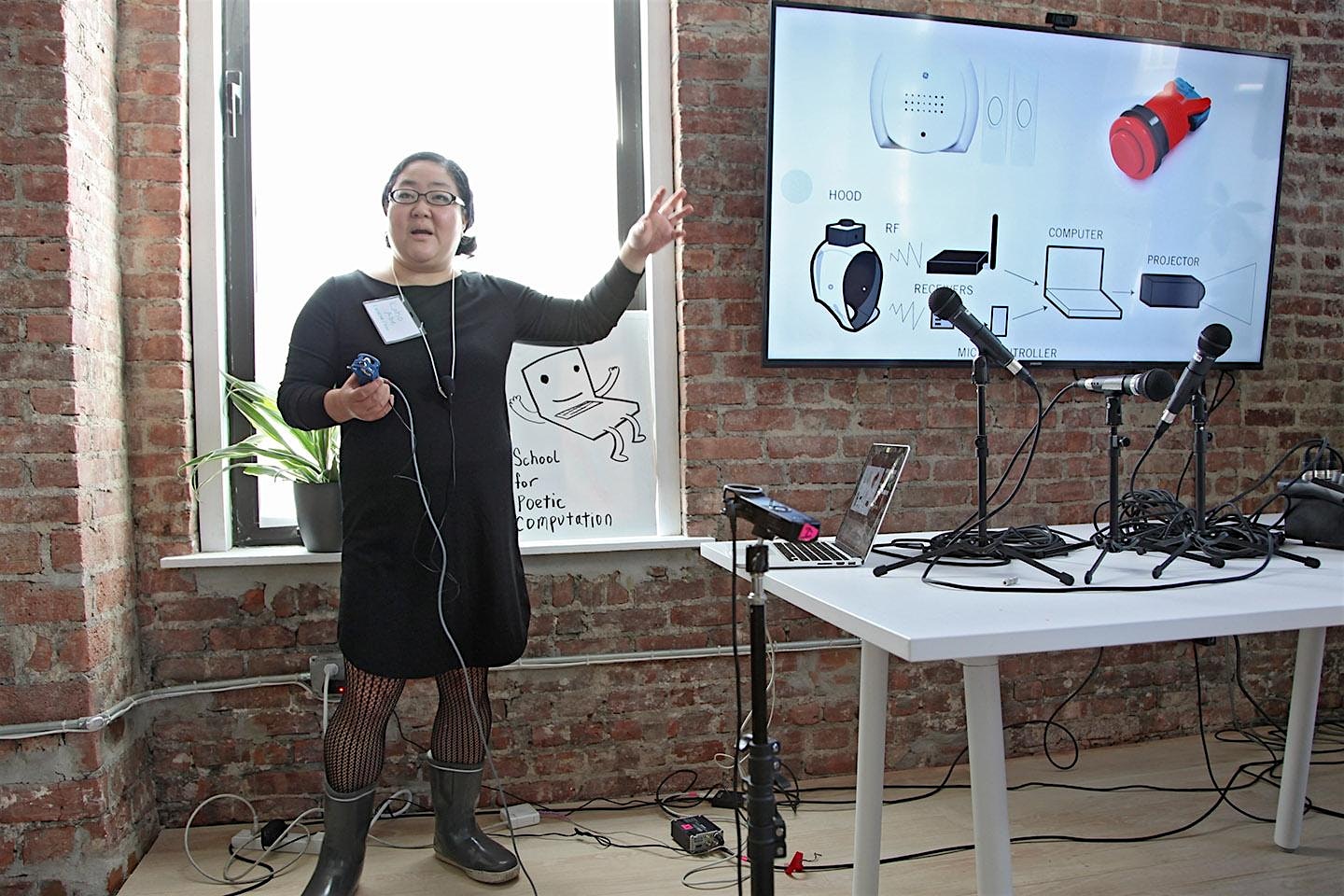School
for
Poetic
Computation
loading...

Learning to Teach is a day-long conference for educators teaching computation in creative fields like art, design or digital humanities departments. Led by Taeyoon Choi (SFPC) and Tega Brain (NYU), the conference will feature keynotes by leading educators including Daniel Shiffman, Naomi Clark, Brad Garton. The keynote speakers will share their experiences teaching computer programming and related topics, their strategies for blending critical thinking, engineering, and inspiring creativity in a teaching environment. This year’s program will include a participatory session for attendees to observe the pedagogical strategies of their peers and develop teaching approaches of their own. Join us to explore the intersection of pedagogy and creative practice, and get ready for the year ahead. Keynotes: Daniel Shiffman works as an Associate Arts Professor at the Interactive Telecommunications Program at NYU’s Tisch School of the Arts. Originally from Baltimore, Daniel received a BA in Mathematics and Philosophy from Yale University and a Master’s Degree from the ITP. He is a director of The Processing Foundation and develops tutorials, examples, and libraries for Processing and p5.js. He is the author of Learning Processing: A Beginner’s Guide to Programming Images, Animation, and Interaction and The Nature of Code (self-published via Kickstarter), an open source book about simulating natural phenomenon in Processing. He can be found talking incessantly on YouTube about programming. Naomi Clark is an independent game designer based in New York City and an Assistant Arts Professor at the NYU Game Center. For more than two decades she's designed, produced, and written for a wide variety of games spanning many platforms and audiences. Among the several dozen released games she's contributed to are early text-based virtual worlds, downloadable and mobile games for mass audiences, and online games for LEGO. She's taught classes on the study and design of games at Parsons: the New School for Design, the New York Film Academy, and the School of Visual Arts, and has contributed writing on games to publications (Feministe) and collections of essays (Videogames for Humans, Queer Game Studies) in addition to co-authoring a textbook entitled A Game Design Vocabulary. For the last fourteen years, Naomi has also served as part of the collective that runs the Sylvia Rivera Law Project, a non-profit legal organization by and for the trans and gender non-conforming communities of New York. Her current design projects are primarily non-digital games: Consentacle, a two-player game of trust, communication and intimacy, and Lacerunner, a 19th-century revision of an existing commercial card game. Brad Garton received his BS in pharmacology from Purdue University, where he also worked towards an MS in psychoacoustics. He eventually entered the graduate music composition program at Princeton University and was awarded a PhD in music composition in 1989. He is currently a Professor on the composition faculty of Columbia University, where he also serves as Director of the Computer Music Center. Much of his work has focused upon the development and real-time use of music performance models, especially in collaboration with Terry Pender and Gregory Taylor in the improvisatory group “PGT”. He is an active composer and music software developer, co-authoring the computer music language RTcmix. He has written a number of ‘language objects’ for Max/MSP, melding the capabilities of diverse music and general-purpose programming languages with the extensive music and graphics processing of the Max platform. Recently he has embedded the RTcmix language within the Unity Game engine, enabling extended algorithmic and audio capabilities in the Unity environment. He has worked as consultant on the design and installation of computer music facilities throughout the world.
Interested in more learning opportunities at the School for Poetic Computation? Join our newsletter to stay up to date on future sessions and events, and follow us on Instagram and Twitter. Support our programming through scholarships. Get in touch over email.